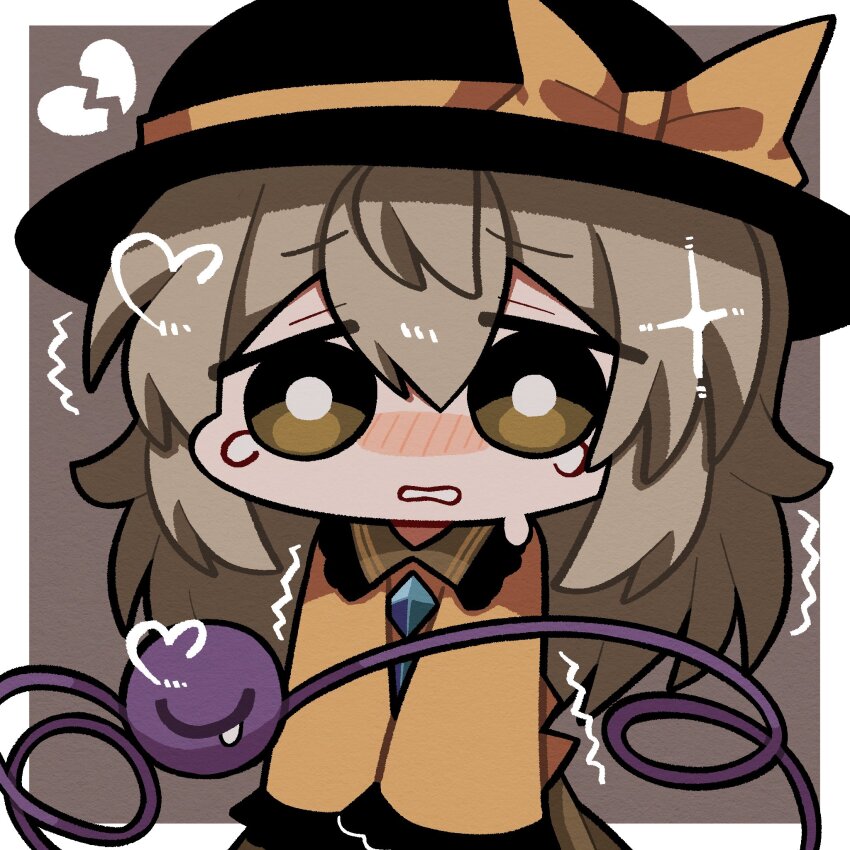hello! this is the first communist theory thing I actually managed to finish and fully understand, I’m gonna move on to other recommendations next, but I did get quite a lot of doubts that I noted in a little text file. none of them are gotchas just things I genuinely wonder about/don’t understand
i apologize in advance if these are common annoying questions, feel free to point me to other resources that answer these things if it’s too much  you also don’t have to answer everything
you also don’t have to answer everything
here’s the text in case it’s useful!! https://www.marxists.org/archive/marx/works/1847/11/prin-com.htm
Section 18
If competition is erradicated when every line of production is controlled by the state as Engels is proposing, will that mean an end of variety in consumer choice? I have indeed heard stories that people in socialist countries “only have one or two brands of X”, I’m not sure to what extent that is true but it seems like the natural conclusion from doing this…
Do you think this is better for an average person? main things that scare me are that, much like with companies in a market, how could we ensure the state produces things that benefit us and not benefit itself instead? this is what worries me about only having a single national bank too. Ideally if we only have one choice we have to make sure it’s the right one, no?
How would niche things, that benefit some part of the population but not everyone, be produced? Things like… fumo plushies, board games, or to put a less banal example, something that helps a condition that is uncommon and doesn’t spread but still exists, like special shoes to help some kinds of foot deformation for example…
thing is in a market system, niche things can make just as much or even sometimes more money than stuff that is produced “to be useful for everyone”, so they almost always appear in some way. but if all the production is controlled by the state, with very grand goals in mind, wouldn’t it not benefit them in any tangible way to invest in these kinds of things?
also, what would inspire innovation if it’s not competition? couldn’t the state just be satisfied with the results something is giving and not be interested in giving it resources to improve?
Section 19
I’m curious what communists think about this with a modern lens? AFAIK a revolution in a single country did happen right? And in Russia so none of the places Engels proposed. It didn’t really spread from there.
Section 20
do marxists think only economic class exists? wouldn’t there still be political classes? here it says that classes would end up disappearing because they only form due to division of labour. But isn’t there even in a fully realized socialist state a division of labour? even if everything is nationalized, isn’t there still a difference in power between, like, a furniture factory worker and the bureaucrat that oversees the state’s furniture building company? even if that bureaucrat is not monetarily richer than the worker per se.
also, it predicts here that education will give people the opportunity to understand the entire production system and thus jump from producing one thing to another, but since this book has written education has become a lot more universal, and that’s not what really happened right? people still chose one thing to specialize on and do it all their lives (or they study something that doesn’t have work opportunities and work something else). is there a difference in how marxists want education to work?
Section 24
I have one doubt about what Engels says about democratic socialists, mainly that small capitalists (“petty bourgeoisie”) in general tend to have the same interests as the proletariat.
i think one of the things that has put me off about revolutionary communism is precisely the attitude towards small capitalists, to be honest my parents are part of them, and I’ve always struggled to see them as a big evil the same way I view corporate giants, mainly because it’s just obvious their aims are not the same
I think the exploitation Engels is talking about where the workers always get the bare minimum that can be afforded happens mainly in big companies, especially the ones that have investors and seek infinite growth, but small companies like my parents’s basically just want to get by and survive, they only want to maintain themselves at an earning level that can support my family and the families of everyone who works there, if they can’t pay the wages with the weekly earnings they take out of their own savings to do it
in my parent’s case they are over 70 so they couldn’t really be part of the factory work either way, and I think what they do is still valuable (managing things, attending calls, organizing production and planning, supervising the design of new ideas, solving disputes, marketing, training new employees, etc…)
will these kinds of companies be treated any differently?
thanks a lot for reading, in advance!


they assumed that the proletarian uprising would have the greatest hold and the strongest power in the most developed places which have the most wage laborers. this prediction was ultimately incorrect. in russia, and virtually every other communist revolution we talk about, what you end up having is a much smaller contest between a thin stratum of wage laborers and petit bourgeois communist sympathizers (lenin, trotsky) that exist in the slightly industrially developed urban areas, soldiers that are dissatisfied with the instability of the failing feudal elite and join the communists, and peasants that are sympathetic to being free of the current governance that subjugates them as serfs all against an elite with outdated martial defenses. so you get the revolution in a russia shattered by the first great war, we in some way already see the failure of the global revolution at this point with the social democrat party of germany voting to join the war, and ultimately, history proceeds in the inverse form that Engels suggested here. the bourgeoisie was in fact weakest where they only barely existed in the ruins of a preceding social order regardless. china’s revolution is very similar. a dying empire breaks down into a nationalist v communist civil war that the communists win because the peasants are awfully tired of having all their fucking grain taken by the aristocracy to sell. germany, Engels’ last place victor on his list that includes neither russia or china, has a failed revolution with the spartacist revolts and the betrayal of the social democratic party, and not even failed communist revolutions in france, england, or the us. i think the failure of marx and engels here was to recognize the stratified ability to partially pay off the domestic proletariat by further tightening around the colonized workers in their global holdings.
i think ultimately that at this point, Engels himself is engaging in a bit of utopian dreaming about what the actual material outcome of the abstract, context-free end result of scientific socialism would look like to experience. in this description, it is presupposed that the society has preceded through the abolition of the dictatorship of the bourgeois, the construction of a dictatorship of the proletariat that would oversee the democratization at the local level of capital among workers, and then finally the dissolution of a state construct existing at all. the other thing i think he fails to see here is capitalism’s willingness to both eschew technological development in favor of the cheap fruits of military conquest and eschew technological development in favor of squeezing logistics, production, and price. capital will shoot itself in the foot for the sake of profit so to speak, in terms of developing away the necessary divisions of wage labor.
as for education, on the one hand is simply the preceding point, that sufficient technological development and capital investment will ultimately make individual laborers ever more unnecessary or differentiated. under a dictatorship of the proletariat that sees this occur in the context of democratic ownership of capital by workers (not necessarily a state apparatus for marx/engels) it makes sense to invest in the long-term pursuit of freeing up labor time, since human labor is what value is derived from. and ultimately, since all value is derived from human labor, the communist dream reaches its horizon when all commodities lack all value because they require negligible amounts of human intervention. on the other hand, the form of education we currently have is not particularly concerned chiefly with the development of human intellects and the production of innovation. pedagogical research shows that pretty much everything about how we organize education is empirically ineffective, and there are also important critiques to be made about how our education system currently serves myriad purposes for the capitalist, from training workers in the management and subjugation of their free time for large amounts of time to the sorting of potential members of the most learned echelons of society being limited to those with the necessary predisposition to not question or be broken by capitalist labors. Discipline, punish, filter. most of the systematic organization of our society is rendered purposefully ineffectual and violent by the need of the dictatorship of the bourgeoisie to subjugate and supplicate of the majority of people, even here domestically.
first note that engels here is discussing a person who as a member of the petty bourgeoisie or the proletariat has taken up the banner of socialism for themselves. engels is distinguishing different types of socialists from communists, but all of the types discussed would call themselves socialists. for the petty bourgeoisie, they are much closer to being tossed back to wage labor than a full on capitalist member of the bourgeoisie that owns means of production at scale. the petty bourgeois person is someone who in some way or another works for themselves and doesn’t really need to employ other people on the basis of wages. with all due gentleness, your parents aren’t members of the petty bourgeoisie, they are the bourgeoisie, categorically speaking. to actually discuss though, i don’t think the idea is that they should be cast out of society, but rather, that they 1) at 70 should probably not have to / be allowed to labor as such regardless? 2) shouldn’t be allowed to eat up the profit generated by the labor of the employees. marx/engels are not saying that there isn’t some amount of labor that a factory owner might do. the point is that that labor and their circumstance does not rightfully entitle them to own the surplus value generated by other human beings. just because they don’t have 100 or 1000 wage slaves doesn’t make profiting off the employees they do have a moral good. capital ownership is all rent-seeking with extra steps. the rent is just sought from the labor of others directly as opposed to literal rent that operates at an additional layer of indirection. the employees that currently have the profits of their labors stolen by your parents should, in the marxist view, be the collective and democratic owners of the capital in question.
2/2
fuck, took me damn near an hour to write this and another fifteen minutes figuring out how to get it to post. fuck.
its okay, thank you a lot for the extensive comment, I’ll take my time reading it in a bit <3
thanks a lot for the really in depth reply, took me a bit to be comfortable understanding it but I think I mostly get your main points and agree with almost everything
I have to say how hard it is to do that reevaluation in the first place, I’m just realizing so many of my questions are just trying to understand how we could not make things only for profit
You mean stuff like… the bracelets that track if amazon workers are moving? obviously I think that should be destroyed and never considered, but I really don’t think most technological innovations are stuff that only have human labor control as their benefit… it’s more about how the innovations end up being used to me
I think what you said on Section 19 makes sense but
would you mind clarifying this part?
I hadn’t considered that part until after writing this post, that’s completely true…
oh I didn’t think of that, I thought it really just meant a small capitalist. so then… would like… a youtuber be petty bourgeois? a writer?
sadly they have to keep doing it because we need to finish the house we bought, it’s been years and only now are we even starting to buy the furniture… its these experiences that made me question if they really belong to the same class of people as billionaires
yeah, I agree with this
it’s hard. partly why so many people take the Capitalist Realism inroad to anticapitalism. it’s kind of the first thing you notice is how hard it is to imagine alternatives.
yes, and also that the innovations are used extremely inefficiently, as you rightly pointed out.
marx and engels’ analysis was highly focused on the condition of the proletariat under industrialized capitalism in bourgeois european societies that hadn’t necessarily thrown off their monarchies yet. consider that the year of publication of this is 1847, a year before the slew of liberal revolutions of 1848 in europe. so in terms of their relatively far future predictions of conditions and circumstances that did not reach their zenith until the end of WWI, the culmination of the communist preparation for the millennarian coming of the global revolution, they didn’t take into account the increasingly global nature of capitalist exploitation. the colonial holdings of the fractured european society of the early 20th century were extremely valuable, and control over those was a key catalyst for WWI, a war of terminal crisis inn european capitalism, sort of imploding on itself. modern europe doesn’t really exist until after that crisis concludes. it’s also the stage of development where the communist revolution truly seemed to be ready to kick off, that circumstances for the proletariat had finally deteriorated to the point that bourgeois society itself was about to mindlessly obliterate itself. but, notably, the communist organization just never really gained traction to do the whole global revolution thing. marx and engels figured it would happen first in the imperial cores, because those places had the most developed proletariats. however, they didn’t have a way to predict the interdiction of the colonial holdings on how the situation panned out. conditions essentially never really reached a point where communist organization could sweep away the authority of the bourgeois states. england never had a revolution, they had extensive colonial holdings, the profits of which could be used to give better wages to domestic workers while the capitalists still made incredible profits. the most successful colonial empires were the most able to use extra violence in the colonies to get extra labor and resources to buy off the proletariat at home. germany had a real attempt at a revolution, had very few colonies incidentally, and lost because the communists were betrayed by their social democratic allies, who at that point were too embedded in the operating structures of their bourgeois state to intentionally implode it. especially after they had agreed to let germany get involved in WWI, something that in many ways made the betrayal of the communist revolution inevitable. russia didn’t have colonies, russia was the colony. the broader russian empire was the local bread basket of europe, operating at basically feudal production to grow grain for the industrialized west. it turned out to be much simpler to topple their bourgeois state because it barely existed in the first place.
sure, those are good examples. a doctor that in a practice, a lawyer in a practice, typically work that is considered “professional” labor is petty bourgeois, specifically when it’s private practice thereof. a lawyer that is solely a public defender is essentially a wage slave of the bourgeois society that employs them (and not a well-paid one mind you).
it’s a funny thing, but from the analysis of how capitalism functions, your parents are unfortunately in the class of owners of the means of production, they’re just bad at it in a technical sense. i don’t mean that as a moral judgement, they’re just not as good at doing capitalism as like, a wall street psychopath. the tension in liberalism ultimately comes down to these questions of how we are individually to feel and relate to things we want to morally valuate. circumstance would determine what would happen with your parents under a communist revolution. if they’re truly kind people, perhaps their workers wouldn’t harbor too much resentment, you know? but that’s what it really comes down to, they’re on the winning side in our society by being in the position to dictate to their workers that the extra part of the value they create is going to your parents’ house that the workers can’t share in. i’m not, and i don’t think anyone normal would agree that your parents are inhuman monsters like elon musk. it’s just that they’re in the same relationship to other people in terms of the means of production.